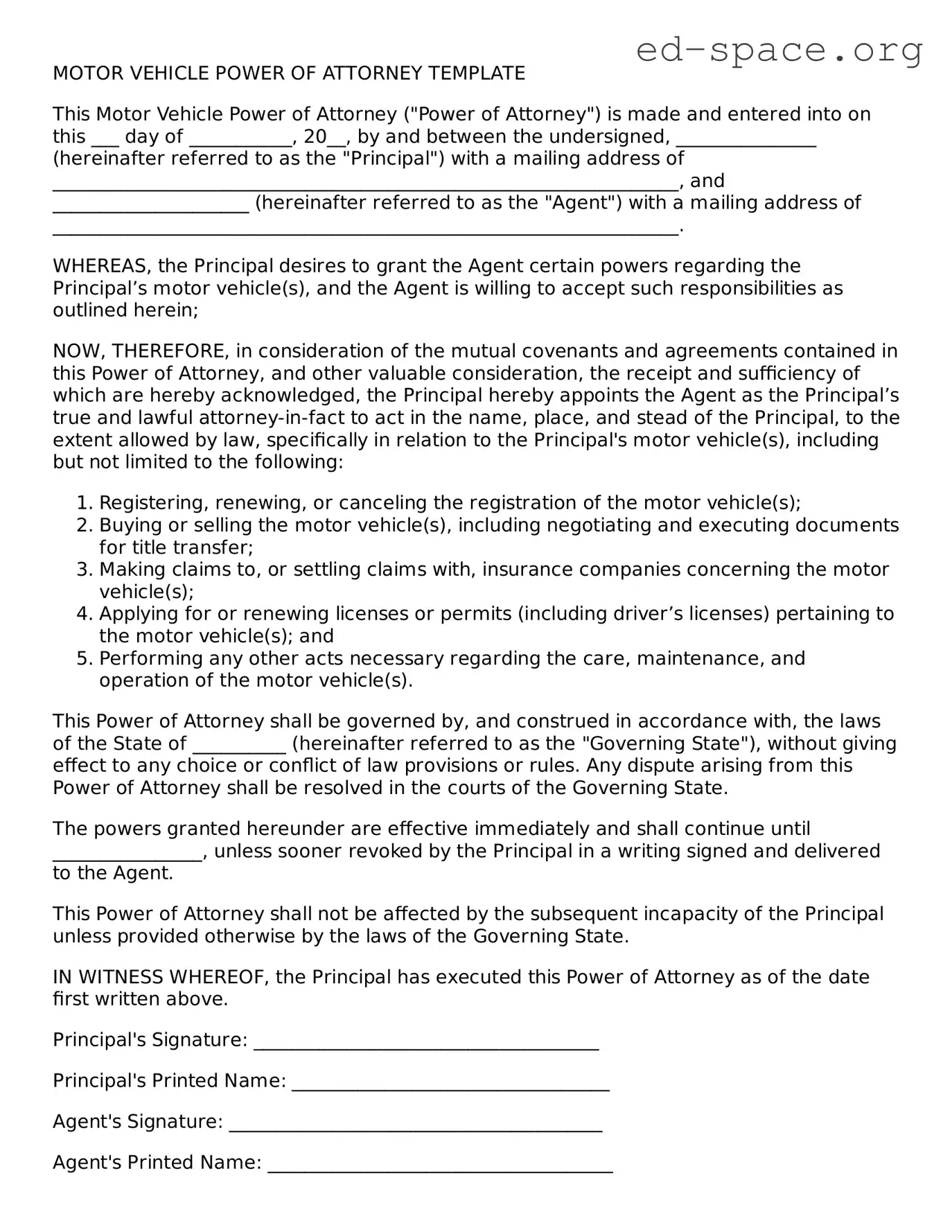MOTOR VEHICLE POWER OF ATTORNEY TEMPLATE
This Motor Vehicle Power of Attorney ("Power of Attorney") is made and entered into on this ___ day of ___________, 20__, by and between the undersigned, _______________ (hereinafter referred to as the "Principal") with a mailing address of ___________________________________________________________________, and _____________________ (hereinafter referred to as the "Agent") with a mailing address of ___________________________________________________________________.
WHEREAS, the Principal desires to grant the Agent certain powers regarding the Principal’s motor vehicle(s), and the Agent is willing to accept such responsibilities as outlined herein;
NOW, THEREFORE, in consideration of the mutual covenants and agreements contained in this Power of Attorney, and other valuable consideration, the receipt and sufficiency of which are hereby acknowledged, the Principal hereby appoints the Agent as the Principal’s true and lawful attorney-in-fact to act in the name, place, and stead of the Principal, to the extent allowed by law, specifically in relation to the Principal's motor vehicle(s), including but not limited to the following:
- Registering, renewing, or canceling the registration of the motor vehicle(s);
- Buying or selling the motor vehicle(s), including negotiating and executing documents for title transfer;
- Making claims to, or settling claims with, insurance companies concerning the motor vehicle(s);
- Applying for or renewing licenses or permits (including driver’s licenses) pertaining to the motor vehicle(s); and
- Performing any other acts necessary regarding the care, maintenance, and operation of the motor vehicle(s).
This Power of Attorney shall be governed by, and construed in accordance with, the laws of the State of __________ (hereinafter referred to as the "Governing State"), without giving effect to any choice or conflict of law provisions or rules. Any dispute arising from this Power of Attorney shall be resolved in the courts of the Governing State.
The powers granted hereunder are effective immediately and shall continue until ________________, unless sooner revoked by the Principal in a writing signed and delivered to the Agent.
This Power of Attorney shall not be affected by the subsequent incapacity of the Principal unless provided otherwise by the laws of the Governing State.
IN WITNESS WHEREOF, the Principal has executed this Power of Attorney as of the date first written above.
Principal's Signature: _____________________________________
Principal's Printed Name: __________________________________
Agent's Signature: ________________________________________
Agent's Printed Name: _____________________________________
State of ________________
County of _______________
Subscribed and sworn to (or affirmed) before me on this ___ day of ___________________, 20__, by _________________________________ (Principal) and _________________________________ (Agent), proved to me on the basis of satisfactory evidence to be the persons who appeared before me.
Notary Public: ___________________________________________
My Commission Expires: ___________________________________
